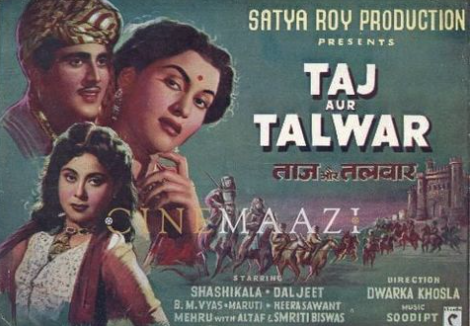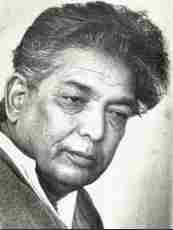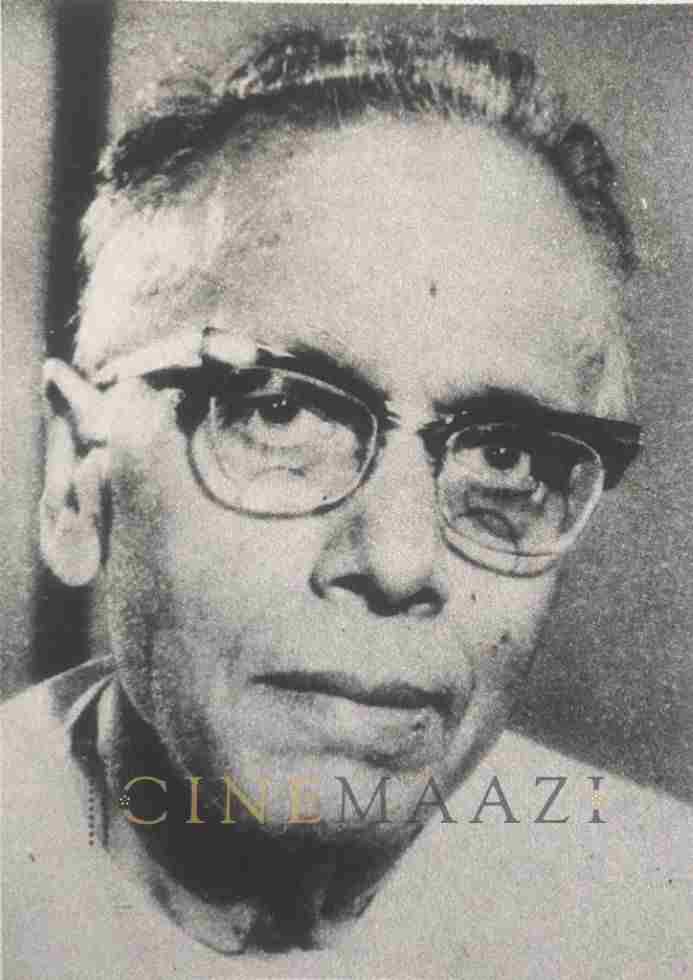B N Reddi
Subscribe to read full article
This section is for paid subscribers only. Our subscription is only $37/- for one full year.
You get unlimited access to all paid section and features on the website with this subscription.
Not ready for a full subscription?
You can access this article for $2, and have it saved to your account for one year.
Winner of the prestigious Dadasaheb Phalke award Bommi Narasimha Reddi was the first Indian Film personality to be honoured with a “Doctor of Letters”. He was also the first Indian Film personality to be honoured with the Padma Bhushan in 1974. Realism and the intense humanism continued to be a major part of his personality. ‘BN’ was a rare combination of experience, wisdom, humility and foresightedness and he strode the Telugu film Industry like a colossus for decades.
___________________________________________
Those were the days when men and women were treated worse than things found under stones after a rainy day. ‘Movie’ indeed was a dirty word, till B.N. Reddi changed all that, at least in South India. He brought respect and respectability to a field which was, in the words of a contemporary chronicler, ‘a beehive of pimps, prostitutes and perverts.’ Even the intellectuals began to take the new medium, ‘talkies’ as they called it, seriously.
Vandemataram, Vauhini’s maiden offering was directed by BN. Based on an unpublished novel of his, the film dealt with several issues that plagued South Indian society….unemployment…dowry system….in-law problems….the whole lot. The movie proved a big hit with the masses.
BN moved on to take another subject of social significance-widow remarriage. It was like playing with fire in those days, but BN went ahead with the making of Sumangali (1940). Here, a bold educated man decides to marry a child widow against very heavy odds. BN drew inspiration from the work of Kandukuri Veeresalingarao, a great social thinker, and even had a character based on him in the film, played by V.Nagaiah. Nagaiah was made up to look like the original. A special silk wig was imported from Paris to make him appear old and credible – such was the passion of BN. Sumangali was a very brilliant film technically. The credit goes to the great genius of Indian Cinema, K.Ramnoth. But BN could not have expected this bold theme to bring money. He lost money, but he did not care. The film satisfied the poet, the social being and the message bearer in BN, and over the years the film became a classic-a subject of discussion at various levels.
BN had tacked some important social issues in his first three movies. Here was a filmmaker, who could live well without making movies and yet had chosen to step into the quagmire. And he made movies of immediate significance and not of the love episodes from Hindu epics and folklore. He felt the medium should be used for social messages. BN who came from a middle class family had a very conservative outlook even though he had a progressive stance which found outlets in his films. Class distinctions provoked him. The importance attributed to family background by the society in the forties made an interesting topic for BN’s films.
Then came a lull for BN who took time off to build a studio of his own – Vauhini – in the style of Bombay Talkies.
In the fifties, BN came out with a historical movie, Malleswari based on the King Krishnadevaraya of Hampi fame and considered by critics and crowd as his best. Malleswari was a poem in celluloid, told with rare artistic finesse, which lingers long in the memory. BN is remembered best for his film, and he loved it that way.
Filmmaking trends in Telugu changed in the Sixties…star system gained strength…pictures were more expensive…distributors managed to get a strangle-hold-it was no longer an art form… it was business…big business. A sensitive artist with ideals suffered in silence watching the shifting sands…BN was no exception…BN made more films….Bhagya Rekha…(1957)…Raja Mukutam (1959)- a mixed bag. But for BN, it was a decline…everything seemed to have changed…Artistic films did not satisfy anyone anymore. Poor BN! He let himself go in a torrent of Telugu and English when friends called on him and talked about films. He spoke out his mind at intellectual gatherings but it was all lost…They praised BN at meeting and felicitations but that was all. Times had changed. BN sat in stony silence most of the time for the last decade of his life…
When people talk of good movies, of clean films, of purposeful cinema, BN is remembered, and his films like, Sumangali, Malleswari, Bangaru Papa, Devata are screened, some go nostalgic…some give out deep sighs…and some shed silent tears. Sentimental folks long for the bygone days of glory that was Telugu cinema and that was BN Reddi.
- Randor Guy
Reddi on Reddi
Vande Mataram was a transcription of my own novel which I had been writing quietly. Its main theme was the problem of unemployment of the educated and it also dealt with the evil practices of rural families, especially the dowry. K.Ramnoth who first suggested its filming wrote a superb screenplay. It was not autobiographical though I did have inspiration from the lives of my relatives in the village.
My friend said Vande Mataram succeeded because of Kanchanamala and not because of me.
_
So I decided to make Sumangali (1940) with all new faces except for Nagaiah who played the role of an elderly man. In this film I showed the process of a woman being made a widow. This enraged our critics who said: “Sumangali must die to make an amangali a sumangali.”
I made Bhakta Potana in which K.V. Reddi made his debut as director. Then came the first shock of the war. We shifted from Madras to Cuddappah. The fall of South-East Asia to the Japanese hit our business. We lost heavily. Against this background came separation from Ramnoth and Sekhar both of whom joined S.S.Vasan’s new found banner Gemini. My friends said “Now B.N. is finished…”
In this film I showed the decadence of art. One character says: I will cut art into pieces and offer them to you.” This is indeed what happened later.
-
I had some long years ago stayed in Hampi and the priest was so kind that he made me hug the idol. At the moment. I had recalled that where I was standing Krishnadeva Raya had once stood and prayed. I had then vowed someday to pay my tribute to the great king.
-
After this I made Bangaru Papa which won a State award. Ranga Rao’s performance was hailed by all. Debaki Bose remade it in Bengali and was reported to have lost heavily on it. I had already told him. “my fortune will not travel 1000 miles.” Talking to me at Mahabalipuram Debaki Bose asked me if I had any personal identification with the film. “If at all anything” I told him “it may be my three year old grandchild who is the only memory of my only daughter.”
This article is a reproduction of the original published in Ninth Indian International Film Festival Indian Retrospectives.
Tags
About the Author







.jpg)


